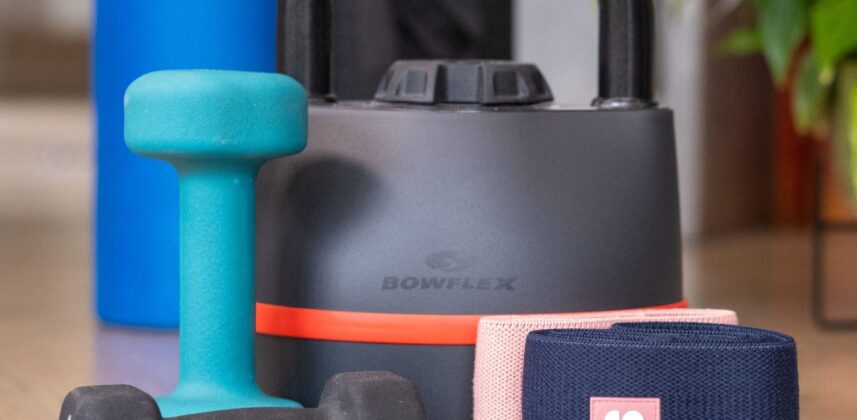The joy of moving, as part of your weight loss drug journey (whatever your age or size)
Robert Price | Last update: 23rd December 2025
Starting or restarting exercise can feel daunting especially if your body has changed in size, age or energy levels. And when using weight loss drugs,like Wegovy or Mounjaro, it’s no surprise that many people ask: “What kind of movement is right for me, right now?”
The good news is there’s no single “correct” way to move. What matters most is choosing something that fits your body, your life and how much energy you have on any given day. Finding movement or exercise that brings you joy, is the secret to its sustainability (and it’s not as difficult as it sounds)

Movement at any size
You don’t need to wait until you’ve hit a “goal weight” before starting to move. In fact, any type of movement or defined exercise is so valuable at every stage of your journey. Regular activity can improve mood, support sleep, maintain muscle, and even help manage side effects such as constipation.
If you’re concerned about joints or mobility, low-impact options are ideal so you could try:
- Walking. It’s accessible, free, and adaptable. Even short walks count!
- Swimming or aqua aerobics reduce strain on joints
- Cycling or using a stationary bike offers a heart-healthy, seated option
- Resistance bands or bodyweight exercises can gently build strength without needing to use heavy equipment
Jane from the SlimrChat community says “I was about 6 months into my journey before I was confident enough to swim again. I’m now 4 months on and I can really feel the difference. It’s making me feel happier. Wish I’d started earlier.”
Movement at every age
It’s completely normal for your exercise preferences to vary as you age. In fact as we age, the type of movement our body requires changes:
- 20s and 30s: you may have more natural energy but less time due to work or family. Think high-intensity sessions or short workouts like a brisk walk or bodyweight circuits
- 40s and 50s: bone density and muscle mass start to decline. Strength training whether with weights, resistance bands or yoga becomes more important. NHS guidelines recommend at least two strength-building sessions a week (I do them in my spare room!)
- 60s and beyond: balance, flexibility and joint health matter most. Tai chi, Pilates, yoga or light resistance training all support mobility and reduce the risk of falling
Remember ageing isn’t a reason to slow down, it’s a reason to adapt and even try new types of exercise. Movement at all ages supports healthy aging, so what are you waiting for, time to get your move on!
Movement for your energy level
If you’re still on weight loss treatments you might feel tired and find that your energy fluctuates, especially during the first weeks as your body adjusts to the medication.
That doesn’t mean exercise is off the table, it just means it may look different:
- Micro sessions: A 10 to 15 minute walk or stretch
- Exercise snacks: Climbing stairs, a few squats or a brisk walk between meetings. Even 1 minute helps!
- Gentle energy-boosters: Yoga, tai chi or light stretching can be restorative
Finding joy in movement
One of the biggest mindset shifts is remembering that movement isn’t only about calories or “working off” food. It’s about how it makes you feel; physically, mentally and emotionally.
We are all different, for some joy can come from dancing in the kitchen, gardening or walking the dog. For others it may be team sports, Zumba classes or lifting weights.
“I walk my dogs twice every day. I’m now doing longer routes and enjoying them much more. It’s way more movement. And it’s helping me stay away from snacking!” Ben
The key is to experiment until you find what makes you want to keep doing it. And remember that consistency matters more than intensity. It’s better to move in small, regular ways than to push yourself into exhaustion with a one-off big session. Just like with nutrition, consistency above all else is key.
Practical tips to make it stick
Start small: Aim for two or three sessions a week, even if they’re only 10 minutes
- Anchor to your routine: Pair movement with daily habits e.g. a walk after dinner, or stretching before bed, squats whilst making a hot drink
- Lean on community: Walking groups, fitness classes, or SlimrChat forums can provide accountability
- Track progress: Notice wins beyond the scale, it could be more stamina, better sleep, or improved mood
Remember that small shifts make movement sustainable and stress free. This makes it easier for you to be more consistent, which is the key.
Bottom line
Movement that works for your size, age and energy isn’t about following the latest fitness trend. It’s about listening to your body and choosing activities that feel achievable and enjoyable.
The best exercise is the one that is right for you when you feel joy and keep doing it consistently.